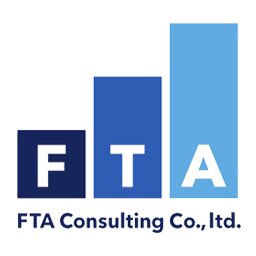Best Sanctions & Export Controls Lawyers in Chatuchak
Share your needs with us, get contacted by law firms.
Free. Takes 2 min.
List of the best lawyers in Chatuchak, Thailand
About Sanctions & Export Controls Law in Chatuchak, Thailand
Sanctions and export controls are legal measures designed to regulate the movement of goods, services, technology, and finances across national borders. In Chatuchak, Thailand, these laws serve to comply with national security policies, international obligations, and trade agreements. Sanctions may restrict trade with certain countries, entities, or individuals, while export controls oversee the transfer of sensitive items that could impact national or international security. Businesses and individuals operating in Chatuchak need to understand these regulations to ensure their activities are lawful and avoid severe penalties.
Why You May Need a Lawyer
Seeking legal advice in the complex area of sanctions and export controls is important for several reasons. You may need a lawyer if you are:
- Engaged in importing or exporting goods or technology from Thailand
- Uncertain about whether your business activities are subject to any sanctions or controls
- Contacted by Thai authorities for suspected violations or for compliance assessment
- Planning to enter new international markets and want to ensure compliance
- Negotiating contracts that may involve restricted parties or regions
- Seeking to apply for a license or authorization to export controlled goods
- Unsure about the dual-use status of certain products or technologies
- Facing potential penalties or proceedings for alleged violations
- Involved in cross-border financial transactions subject to sanctions
A legal specialist can help interpret complex regulations, provide strategic advice, assist with documentation, and represent you before government bodies.
Local Laws Overview
Thailand’s legal framework for sanctions and export controls is governed by several key acts and regulations, enforced by multiple government agencies. The primary legislation includes the Customs Act, which regulates import and export of goods and imposes penalties for non-compliance. The Trade Control on Weapons of Mass Destruction Related Items Act (TCWMD) addresses the control of goods that could be used for military or nuclear activities. Thailand also implements United Nations Security Council sanctions, and the Ministry of Foreign Affairs regularly updates its lists of sanctioned entities and individuals.
In Chatuchak, businesses must be aware of both national legal requirements and any additional local procedures enforced by customs and authorities at logistics hubs such as the Chatuchak transport and trade areas. Failure to comply with these laws can result in goods being seized, fines, reputational damage, and even criminal charges.
Frequently Asked Questions
What are export controls in Thailand?
Export controls in Thailand regulate the transfer of specific goods, technology, and software out of the country to protect national security and fulfill international commitments. These controls focus on items with potential military or dual-use applications.
Do I need an export license in Chatuchak?
If you are exporting items that are listed as controlled goods, you are required to obtain an export license from the relevant Thai authority, regardless of your location in the country, including Chatuchak.
How do I know if my product is subject to controls or sanctions?
You should review the control lists issued by the Ministry of Commerce and other relevant agencies, or consult a legal expert who can help determine if your goods or technology fall under Thai sanctions or export controls.
What are the consequences of violating sanctions laws in Thailand?
Violations can lead to administrative penalties, confiscation of goods, heavy fines, and potentially criminal prosecution, depending on the severity and nature of the breach.
Which government agencies handle export control matters in Chatuchak?
Key agencies include the Ministry of Commerce, the Ministry of Foreign Affairs, Thai Customs, and relevant security agencies with jurisdiction over strategic goods and technology transfers.
If my business operates only within Thailand, do sanctions still apply?
While domestic trade is less affected, sanctions can apply if your partners or transactions connect to restricted countries, entities, or persons, even indirectly. Careful screening is essential.
How often are sanctions and control lists updated?
The lists may be updated frequently to reflect international developments. Businesses should monitor official announcements for the latest changes.
Can I appeal a decision related to seizure or penalties?
Yes, you have the right to appeal administrative decisions by customs or other authorities. Engaging a lawyer can help you navigate the appeals process.
Are all export items subject to the same level of control?
No, only certain goods identified on control lists are subject to stringent regulations. However, all exports must comply with basic customs procedures.
What should I do if contacted by authorities regarding export controls?
You should seek immediate legal advice to understand your position, gather relevant documentation, and communicate appropriately with the authorities to protect your interests.
Additional Resources
If you need further information or assistance regarding sanctions and export controls in Chatuchak, the following resources are recommended:
- Ministry of Commerce - Department of Foreign Trade
- Thai Customs Department
- Ministry of Foreign Affairs - United Nations Sanctions Committee
- Office of the National Security Council
- Embassies or trade chambers for country-specific sanctions information
- Legal aid clinics or associations with expertise in trade and customs law
Next Steps
If you are seeking legal assistance for matters involving sanctions and export controls in Chatuchak, you should take the following steps:
- Gather all documentation related to your business activities, transactions, and any communications from authorities.
- Identify the specific issue or question you face, such as license requirements, restricted items, or compliance checks.
- Consult with a lawyer who specializes in sanctions and export controls to get a clear assessment of your rights and obligations.
- Follow your lawyer’s advice for responding to authorities, appealing decisions, or implementing compliance procedures within your business.
- Monitor government and industry updates for changes in relevant laws and regulations to ensure ongoing compliance.
Expert legal guidance will help you navigate Thai sanctions and export controls with confidence and avoid costly mistakes or penalties.
Lawzana helps you find the best lawyers and law firms in Chatuchak through a curated and pre-screened list of qualified legal professionals. Our platform offers rankings and detailed profiles of attorneys and law firms, allowing you to compare based on practice areas, including Sanctions & Export Controls, experience, and client feedback.
Each profile includes a description of the firm's areas of practice, client reviews, team members and partners, year of establishment, spoken languages, office locations, contact information, social media presence, and any published articles or resources. Most firms on our platform speak English and are experienced in both local and international legal matters.
Get a quote from top-rated law firms in Chatuchak, Thailand — quickly, securely, and without unnecessary hassle.
Disclaimer:
The information provided on this page is for general informational purposes only and does not constitute legal advice. While we strive to ensure the accuracy and relevance of the content, legal information may change over time, and interpretations of the law can vary. You should always consult with a qualified legal professional for advice specific to your situation.
We disclaim all liability for actions taken or not taken based on the content of this page. If you believe any information is incorrect or outdated, please contact us, and we will review and update it where appropriate.










